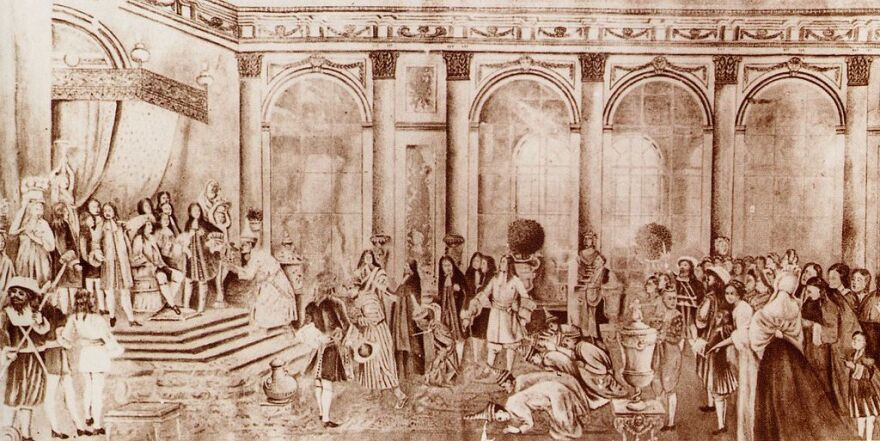The rise of the American and French Revolutions were signs of deep changes in the Western world in the late 18th and early 19th centuries. Not only was the Age of Enlightenment a period of political upheaval, It was also marked by economic change as a thriving middle class began to grow in Europe and across the sea in the new world. This shift had very real and practical effects on the world of music. It changed the way composers created work and supported themselves.
From 1500 to around 1800 the “dream job” of most composers was to be the appointed Kapellmeister of a prestigious court. For centuries the aristocracy would employ and support entire orchestras. These groups would help provide regular entertainment for the court and it was a matter of status to have the best musicians and the most talented composers providing original masterpieces for the consumption of nobility. This system was responsible for the tremendous output of Baroque composers including Telemann, J.S. Bach, Handel and Domenico Scarlatti.
As the world’s economy began to shift, the aristocracy could no longer easily afford such extravagance. For instance, when Prince Anton Esterhazy succeeded his father, Nikolaus II, in 1790, he dismissed the vast majority of his father’s court musicians. Franz Joseph Haydn himself had to take a drastic pay cut as the Kapellmeister. This was ultimately a blessing; Haydn was now free to travel to Vienna and London and compose for various other orchestras.

Wolfgang Amadeus Mozart danced from one position to another in various courts, but he never held the traditional title of Kapellmeister, much to the chagrin of his father. This is one of the factors that led to Mozart’s financial difficulties near the end of his life.
Ludwig van Beethoven never worked in this capacity at all. Instead he relied heavily on specific patrons, the sales of his publications and his concert performances. This became the growing trend among composers of the early Romantic period.
One notable exception is Richard Wagner who served as Kapellmeister to the court of Frederick Augustus II of Saxony. However, as a general rule the collapse of the Kapellmeister system meant that composers wrote less and relied on publication and performance more.
Timeline is an exploration into the development of Western music. Take a journey into the events, characters and concepts that shaped our Western musical tradition.




